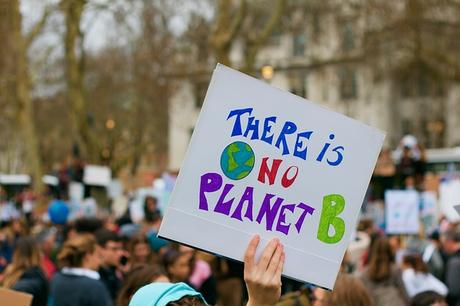Global methane emissions have “dramatically increased” due to the fracking boom in the past decade, warned a new study.
The biological sources such as cows, rice fields, and tropical wetlands have been contributing to the rapid increase in the levels of greenhouse gas in recent years. However, the research shows that the controversial extraction process also contributed to the rise in greenhouse gas levels.

Researchers from Cornell University studied the “chemical fingerprint” of methane in the atmosphere, and they concluded that fracking has caused about one-third of emissions in the past decade.
During the last decades of the 20th century, there was a steady rise in the methane levels before leveling off for the first decade of the 21st century. However, they have been again rising rapidly since 2008.
The continuous rise in methane levels in the coming decades will significantly cause an increase in global warming and disrupt the efforts to achieve the international targets under the Paris Agreement to control the disastrous climate change, the study warns.
Different chemical signature of the gas is found with the various sources of methane which is related to the weight of the carbon atom at the center of its molecule.
Methane emitted from fossil fuels has higher concentrations of the heavier carbon-13 variant than the lighter carbon-12. However, it is lighter with less carbon-13 when the gas gets emitted from biological sources.
The carbon composition of the gas changed with lower levels of carbon-13 since the rise in methane in 2008. The experts attribute this sharp rise to biological sources, most likely animal agriculture, tropical wetlands, or rice culture.
However, the research shows that the process of fracking for shale gas causes leakage or venting of methane, which also has a lower carbon-13 content compared to conventional fossil fuels.
The exploitation of shale gas through hydraulic fracturing or fracking has been booming in the US and involve pumping of the liquid at high pressure deep underground for fracturing shale rock and releasing the gas.
The study concludes that in the past decade, methane from fossil fuels most likely has exceeded emissions from biological sources and shale gas, accounting for 50% and more of the total from fossil fuels.
According to the study published in a journal of the European Geosciences Union, Biogeosciences, over the past decade, nearly one-third of the total increased emissions from all sources worldwide is due to shale gas production.
The study said: “The commercialization of shale gas and oil in the 21st century has dramatically increased global methane emissions.”
Study author Professor Robert Howarth said the recent increase in methane “is massive.”
“It’s globally significant. It’s contributed to some of the increase in global warming we’ve seen and shale gas is a major player.”
Methane is a potent greenhouse gas, and the climate responds more quickly to changes in methane. However, carbon dioxide has a long-term impact on the atmosphere.
Professor Howarth said: “If we can stop pouring methane into the atmosphere, it will dissipate. It goes away pretty quickly, compared to carbon dioxide. It’s the low-hanging fruit to slow global warming.”
The Committee on Climate Change in the UK has warned that emissions from the nascent shale gas industry should be strictly controlled with tight regulation, close monitoring, and it requires rapid action for addressing methane leaks.
Both shale and conventional gas was responsible for the recent increase in methane as per the findings of the study – “the best strategy is to move as quickly as possible away from natural gas,” warning it was not a “bridge fuel” from such fossil fuels as coal to cleaner technology.
Professor Grant Allen from the University of Manchester, who was not involved in the research, said: “Controlling emissions from fracking, and fossil fuels in general, represents a potential policy quick fix to stemming the rise of methane still further.
“If we can control the manmade methane emission sources that we can, then methane levels could yet be stabilised. However, natural climate feedbacks could override this intervention in a warmer future if we do not also simultaneously control carbon dioxide emissions now.
“A wholesale approach to reducing all controllable forms of greenhouse gas emissions is required to avoid this,” Allen asserted.

